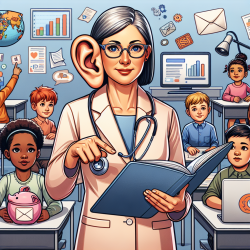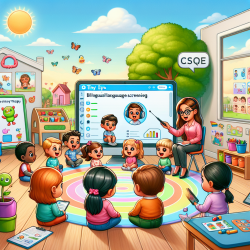Leveraging Research on Preschool Media Use to Enhance Language Development in Children
As practitioners dedicated to fostering optimal language development in children, it is crucial to remain informed about the latest research findings and their practical applications. A recent study titled Does the Association between Preschool Media Use and Language Difficulties at School Entry Vary by First Language of the Child and Parental Education? offers valuable insights that can help us refine our approaches to supporting young learners.
Key Findings from the Study
The study analyzed data from 4015 children and examined the association between preschool media use and language difficulties, considering factors such as the child's first language (FL) and parental education (PE). Here are some critical findings:
- Children with non-German FL and low PE had higher media use and more language difficulties.
- The association between media use and grammatical abilities was more pronounced in children with German FL and medium/high PE.
- Extensive media use was linked with language difficulties for all children, irrespective of their social background.
Implications for Practitioners
These findings highlight the need for tailored interventions based on a child's social background and media use habits. Here are some actionable steps practitioners can take:
1. Assess Media Use
Incorporate questions about media use into initial assessments. Understanding a child's media consumption patterns can provide insights into potential language development challenges.
2. Educate Parents
Provide parents with information on the impact of media use on language development. Encourage them to limit screen time and engage in interactive, language-rich activities with their children.
3. Tailor Interventions
Design interventions that consider the child's first language and parental education level. For instance, children from non-German FL backgrounds may benefit from targeted support in grammatical abilities.
4. Promote Interactive Media
Encourage the use of interactive, educational media that fosters language development rather than passive consumption. Interactive media can provide valuable linguistic stimulation, especially for children with non-German FL.
Encouraging Further Research
While this study provides valuable insights, further research is needed to explore the nuances of media use and language development. Practitioners are encouraged to stay updated on emerging research and consider participating in studies to contribute to the growing body of knowledge in this field.
To read the original research paper, please follow this link: Does the Association between Preschool Media Use and Language Difficulties at School Entry Vary by First Language of the Child and Parental Education?










